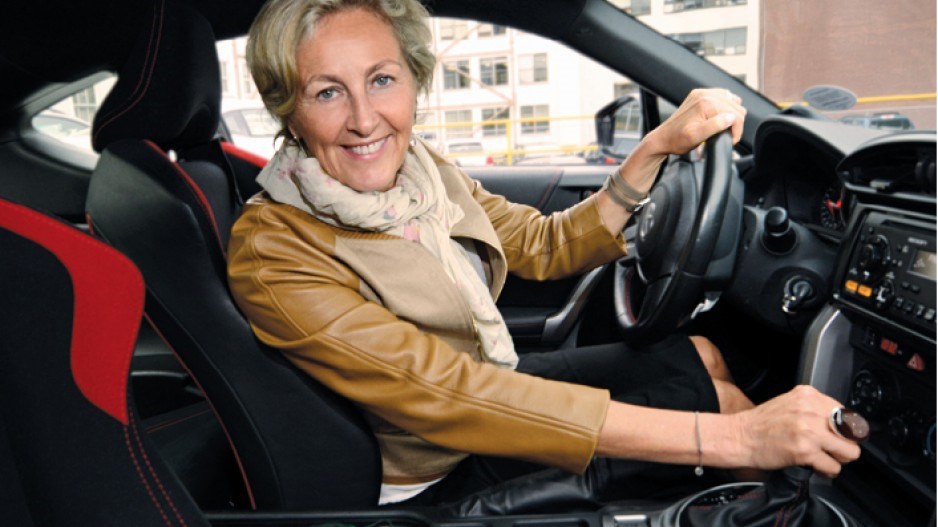The new chief executive officer of Vancouver's homegrown car-share co-op is planning some big changes.
“This fall, we're dropping ‘the car co-op' and we're just going to be Modo,” Nathalie Baudoin, CEO of Modo The Car Co-op, told Business in Vancouver. “And when we're Modo, we could provide you with bikes, with ride share, with anything to help you plan your transportation needs.”
Modo got its start in 1997 as the Co-operative Auto Network, founded on the ideals of the co-operative movement and the environmental benefits of car sharing. It rebranded as Modo in 2011, an effort that increased membership in the non-profit by 30%, according to Cause and Effect, the Vancouver agency that led the rebranding effort.
The co-op has also focused on renewing its stock of cars, with an emphasis on sustainability: 13% of Modo's fleet are hybrid or electric vehicles.
Baudoin, a former marketing director at Mountain Equipment Co-op (MEC) and Patagonia, is the first CEO the organization has had – she replaces Phil Baudin, whose title was executive director – and she plans to aggressively expand the co-op while staying true to its member-driven roots.
Baudoin plans to double the co-op's membership and revenue by 2017. She said taking out a bank loan to increase the co-op's existing fleet of 300 cars and putting the organization “in the red” wouldn't go over well with members, who are encouraged to wash the cars and fuel them in order to keep costs down. Instead, she plans to raise money through a fundraising campaign or crowdsourcing.
“People who believe in sustainability, who believe in a new way of transportation, we think we might have some people grow the business – because we're more than a business,” she said.
Baudoin is quick to point out that unlike Modo's competitors, the co-op isn't owned by a large corporation. Zipcar, which entered Vancouver in 2007, was bought by car rental company Avis Budget Group (Nasdaq:CAR) in 2011. Car2Go arrived in Vancouver in 2011 and is owned by Daimler (Nasdaq:DDAIF).
But the co-op business model has one big upside that Baudoin experienced first-hand at MEC: the ability to directly communicate with loyal customers who are open to receiving targeted messages about specific products or services.
“Because it's a co-op, you know everything about them,” Baudoin said. “You have a wealth of data.”
Currently, Modo cars are concentrated heavily in Vancouver. Baudoin said her planned expansion includes putting more cars in other Metro Vancouver municipalities. The company uses data about where customers live to decide where to place new cars, an approach that differs from Zipcar and Car2Go, said Anthony Casey, marketing coordinator at Modo.
Casey said the co-op continues to see strong membership growth, particularly in its business category. It also continues to see demand from developers looking to place cars in new condo buildings.
Expanding Modo's membership will lead to another challenge, said Baudoin. While current members have tended, like MEC customers, to be devoted to sustainability and open to joining a co-op, extending Modo's reach will mean taking on customers who value convenience over making the extra effort to keep costs low for all members.
Baudoin hopes to partner with Car2Go, which operates under a different model, on an “etiquette” campaign. Baudoin said that many Modo members also have memberships with Car2Go.




